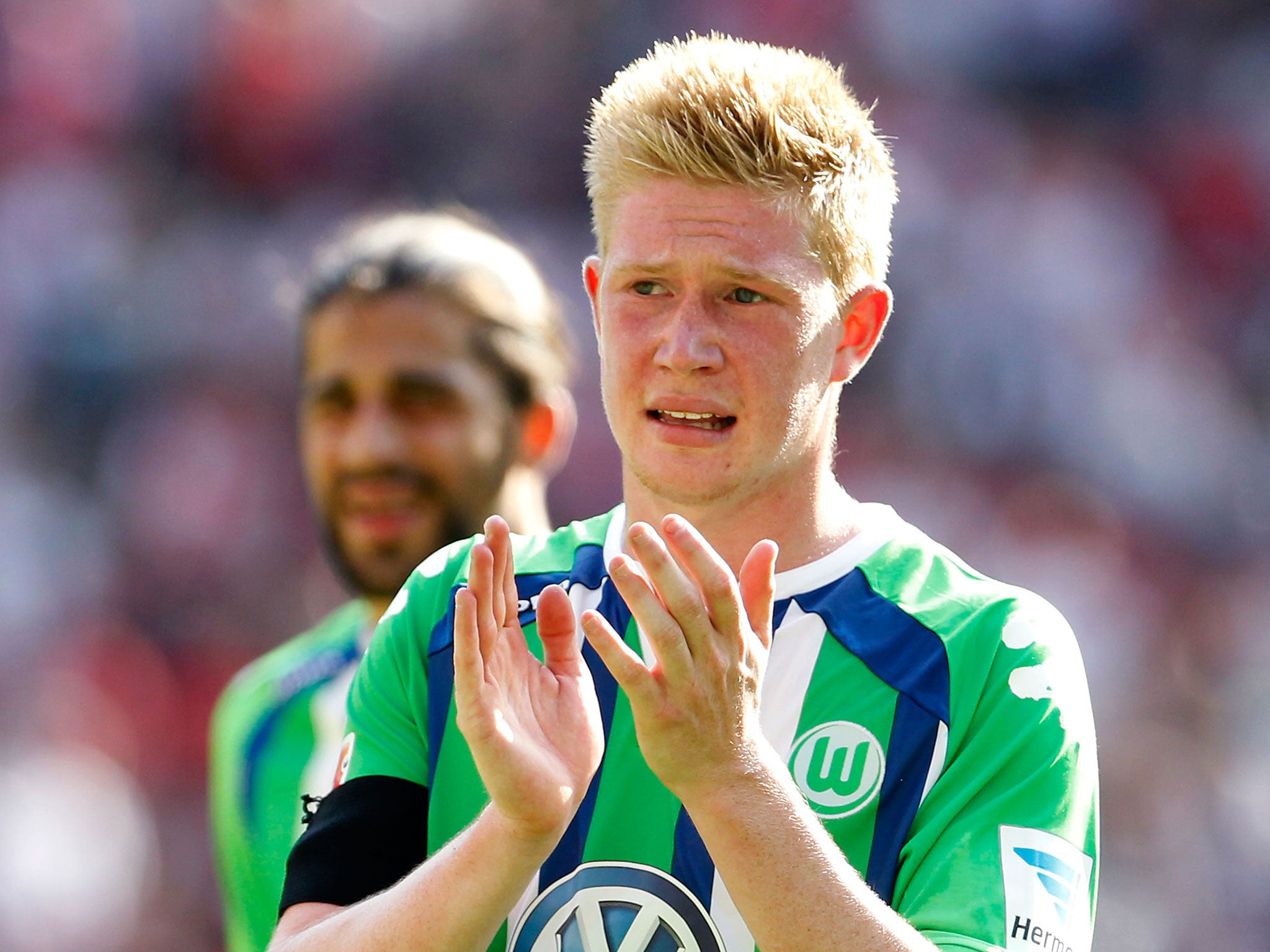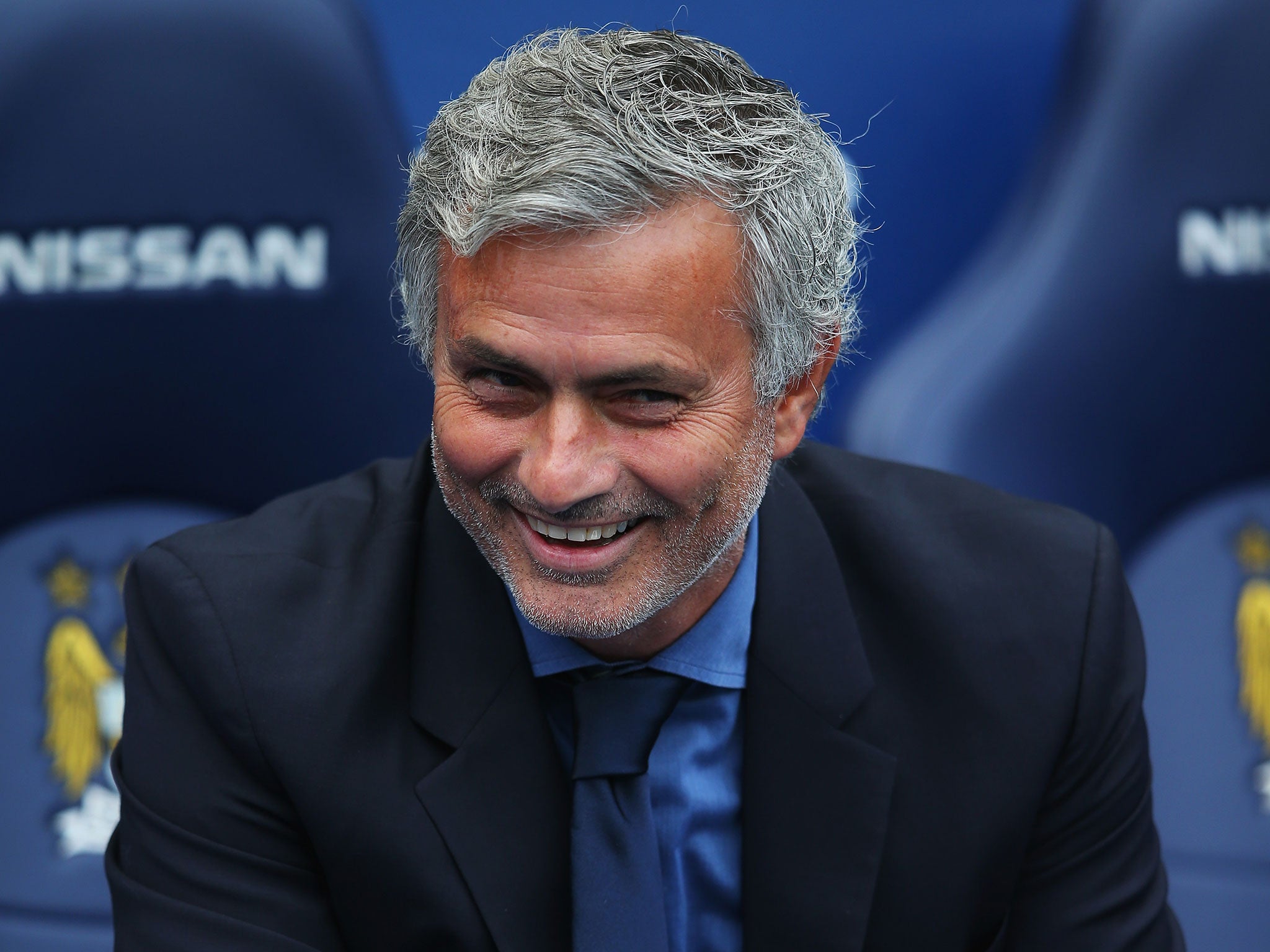Kevin De Bruyne: Why do Manchester City put such a high value on a player Chelsea rejected?
Belgian’s transfer fee has trebled in less than two years at Wolfsburg, so what does this say about England’s top two clubs?

Your support helps us to tell the story
From reproductive rights to climate change to Big Tech, The Independent is on the ground when the story is developing. Whether it's investigating the financials of Elon Musk's pro-Trump PAC or producing our latest documentary, 'The A Word', which shines a light on the American women fighting for reproductive rights, we know how important it is to parse out the facts from the messaging.
At such a critical moment in US history, we need reporters on the ground. Your donation allows us to keep sending journalists to speak to both sides of the story.
The Independent is trusted by Americans across the entire political spectrum. And unlike many other quality news outlets, we choose not to lock Americans out of our reporting and analysis with paywalls. We believe quality journalism should be available to everyone, paid for by those who can afford it.
Your support makes all the difference.Is Kevin De Bruyne brilliant or brittle? Having failed once in England, does he warrant the second biggest transfer fee in English history to bring him back? Is he closer to Eden Hazard or Thorgan Hazard?
The question of whether De Bruyne is worth it – the money, the time, the fuss – divides and defines the two best teams in the country. It will go some way to determining the destination of the Premier League title, as well as revealing something about the difference between Chelsea and Manchester City.
The numbers themselves tell the story: 19 months ago Chelsea, with no regular first-team place for De Bruyne, sold him to Wolfsburg for £18m. This week, City reached a deal with Wolfsburg to buy him for £54m, three times that fee.
De Bruyne has certainly performed very well for Wolfsburg. He starred in and settled the German Cup final against Borussia Dortmund in May, gleefully spoiling Jürgen Klopp’s farewell party. Two months later, he made the equaliser and scored a penalty as Wolfsburg beat Bayern Munich to win the German Super Cup. Overall, this was a good spell for a good player in a good side: but De Bruyne did not treble in speed, size or skill during his time at the Volkswagen Arena.
Ultimately, this is the story of how Chelsea and Manchester City value De Bruyne, and how a player discarded by one side could be so valuable to the other. Not much separates Chelsea and City, so how can they value this one player so differently?

The tearful deterioration in De Bruyne’s relationship with Jose Mourinho, leading to the midfielder’s departure, was remarkably swift. When Mourinho returned to Stamford Bridge in 2013, De Bruyne, just 21 years old, had completed an excellent loan season at Werder Bremen. Klopp had tried to sign him for Dortmund earlier that summer, texting him on the day of the Champions League final at Wembley, only for De Bruyne to decide to try his luck with his parent club.
At Mourinho’s re-unveiling, the Chelsea manager said how important it was to get the best out of loaned players like De Bruyne and Romelu Lukaku. “They are the type of players Chelsea have invested a lot into,” Mourinho said, “and it’s my work to extract the best from those investments. Both are ready for my squad.”
So when Mourinho began his second spell in charge, De Bruyne started the first Premier League game against Hull City and the third, as Chelsea went strikerless, at Manchester United.
Then the Belgian was replaced by André Schürrle. Rather than inspiring him to improve, the opposite happened – his head dropped, as did his level in training. When he was brought back for a trip to Swindon Town in the Capital One Cup, he struggled and Mourinho made clear how unimpressed he was. “The next time Kevin is on the pitch,” he said, “he has to think he’s playing for his next appearance.” The player’s final outing was in a Capital One Cup defeat at Sunderland on 17 December 2013.

Mourinho likes to test his players’ mentalities, to drop them, criticise them and see how they react. This is what he calls “confrontational leadership”, his very personal style on which he has built title-winning squads over the years. “It is when you are ready to provoke your players, to try to create some conflict,” he explained last season, “with the intention to bring out the best from them.”
From the two years since his return to Chelsea, dealing with a new generation of players, it is easy to see who passed Mourinho’s tests and who did not. Thibaut Courtois, Cesar Azpilicueta, Oscar and Eden Hazard are all important members of the side. But De Bruyne, unhappy with the competitive pressure, left halfway through the Portuguese’s first season. Lukaku and Schürrle have also departed.
When asked last week why he sold De Bruyne, Mourinho said the player simply could not cope with competing for a place. “If you have a player knocking on your door and crying every day he wants to leave, you have to make a decision,” he said. “It was like a wall, a block. He was not ready to compete. He was an upset kid, training very bad. He needs motivation to train well, by playing every game.” De Bruyne’s confidence was so shattered by his attempt to play for Chelsea that he was noticeably struggling in training with Belgium. He needed a new start, and he got one in Germany.
But if De Bruyne can fall so short of Chelsea’s standards, why would the team trying to usurp them as champions value him so highly? Because they are different clubs, with different approaches.
City have never had a manager like Mourinho, who transformed Chelsea and the club’s standards as soon as he took over. The closest City could find was Roberto Mancini, whose career record is far less impressive. When Mancini’s methods became too authoritarian, and he isolated too many players, he was sacked and replaced with the more “holistic” Manuel Pellegrini. The Chilean’s gentler approach got far more out of fragile players such as Edin Dzeko.
There is a sense, watching Manchester City over the past six years, that they have lacked the relentless intensity that Mourinho has inculcated in Chelsea. After winning his first title in 2005, Chelsea confidently retained their title the following year. City have never done that, and both times they won the Premier League – under Mancini in 2012 and Pellegrini in 2014 – several players were a long away from the same standard the following year.
Ultimately, De Bruyne will walk into an environment far more amenable to him than the one he struggled with at Cobham. Pellegrini and Mourinho are very different managers and De Bruyne is unlikely to be put under the same pressure he found at Chelsea. Mourinho said that De Bruyne “needs to know that he is important” and a £54m fee is certainly a powerful way of conveying that.
When Mourinho was asked what City’s purchase of De Bruyne said about the difference in standards between the two clubs, he said that he did not understand the question.
It may well be true that City have lacked some of that Mourinho intensity in recent years, and that with it they could have won more trophies. But their more relaxed feel may be the difference in “extracting the best from the investment”, as Mourinho himself once put it.
Join our commenting forum
Join thought-provoking conversations, follow other Independent readers and see their replies
Comments